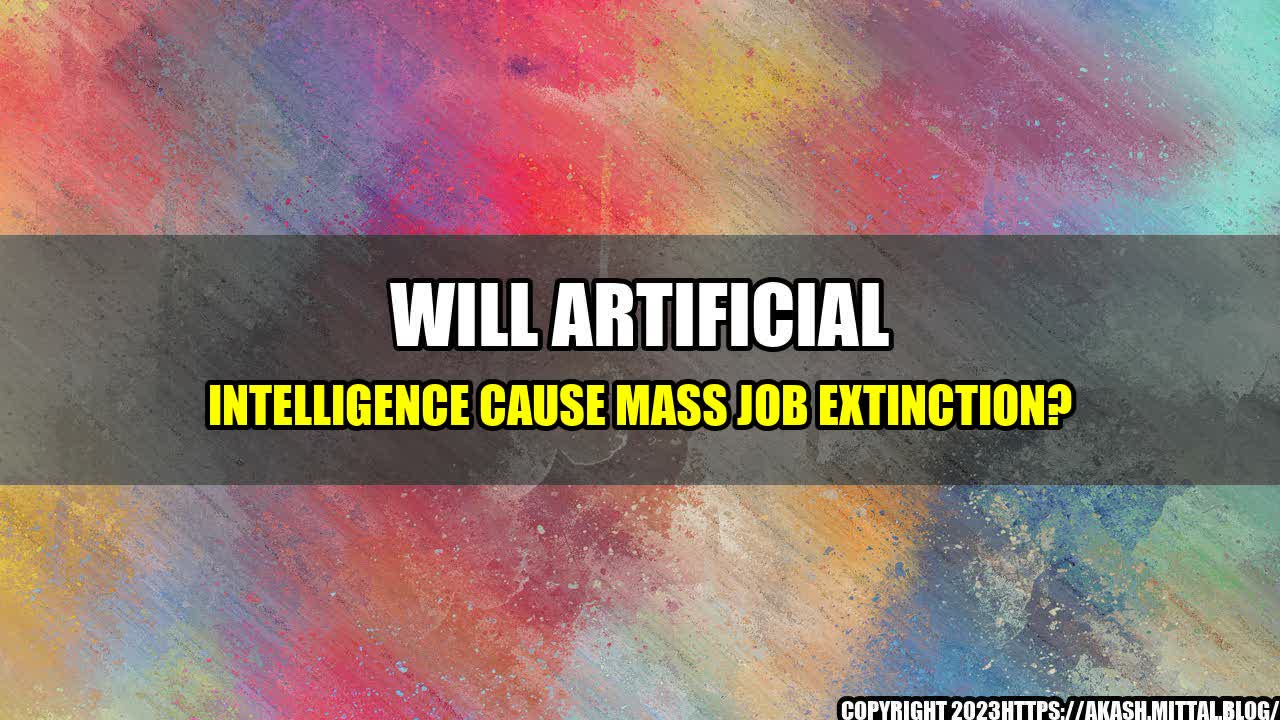Introduction
Picture this: It's the year 2035, and artificial intelligence has become more advanced than ever before. Robots and machines are doing almost every job imaginable, from driving trucks to performing surgeries. You might think this scenario spells doom for human workers, with millions suddenly unemployed and the world in chaos.
However, that might not be the case. In fact, according to Sam Altman, CEO of OpenAI and former president of startup accelerator Y Combinator, AI won't lead to a mass extinction of jobs. In this article, we'll take a closer look at why he believes this to be true, as well as some quantifiable examples of how AI is already impacting the job market today.
One example of how AI is already changing the job market is in the field of customer service. Chatbots and virtual assistants are now being used to answer common queries and help customers solve basic problems, freeing up human customer service representatives to handle more complex issues. This has led to increased efficiency and cost savings for businesses while also improving customer satisfaction.
Another example is in the field of medicine. AI is being used to analyze medical images and provide diagnoses with a high degree of accuracy. Radiologists and other medical professionals can then use this information to make informed decisions about patient care. This doesn't replace the need for doctors, but it does speed up the process and make it more reliable.
Finally, AI is being used in the field of manufacturing to automate repetitive tasks and improve efficiency. This has allowed companies to produce goods at a lower cost and with fewer errors. It's also led to the creation of new jobs in areas like robotics engineering and data analysis.
Why AI Won't Lead to Mass Job Extinction
So why does Sam Altman believe that AI won't lead to mass job extinction? For one thing, he points out that historically, automation has always created more jobs than it has destroyed. When machines take over certain tasks, it frees up humans to focus on other areas where they can add value.
Additionally, Altman argues that AI is simply a tool that can be used to augment human skills rather than replace them entirely. For example, a doctor who can use AI to analyze medical images more quickly and accurately can then spend more time with patients, providing empathy and care that no machine can match.
Conclusion
So what does all of this mean for the future of work? First of all, it's clear that AI is already having a significant impact on the job market. However, rather than being a sign of impending doom, this can be seen as an opportunity for humans to work alongside machines in new and creative ways.
Secondly, we need to be proactive in preparing for the changes that AI will bring. This means investing in education and training programs that will help workers learn the skills they need to succeed in a world where AI is a ubiquitous presence.
Finally, we need to be mindful of the ethical implications of AI and work to ensure that its benefits are spread equitably across society. AI has the potential to create a more just and fair world, but only if we actively work to make it so.

Curated by Team Akash.Mittal.Blog
Share on Twitter Share on LinkedIn